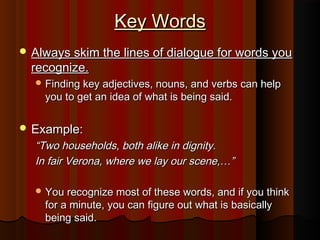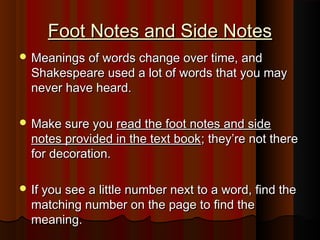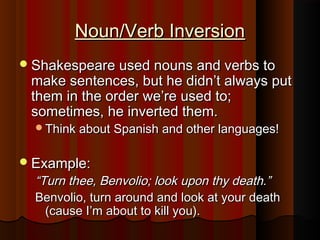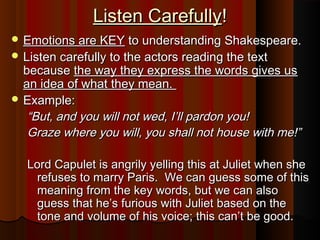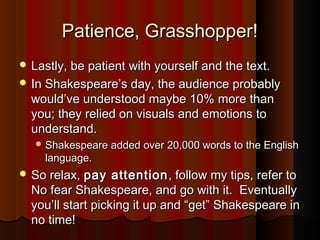This document provides tips for understanding Shakespeare's language in his plays. It recommends skimming for familiar words, using footnotes to understand unfamiliar words, listening to actors' delivery to understand emotions and meanings, and using resources like SparkNotes if passages are still unclear. The document emphasizes that Shakespeare's word order and meanings have changed over time, so these tips can help a modern reader start to comprehend his rich language through patience and practice.

